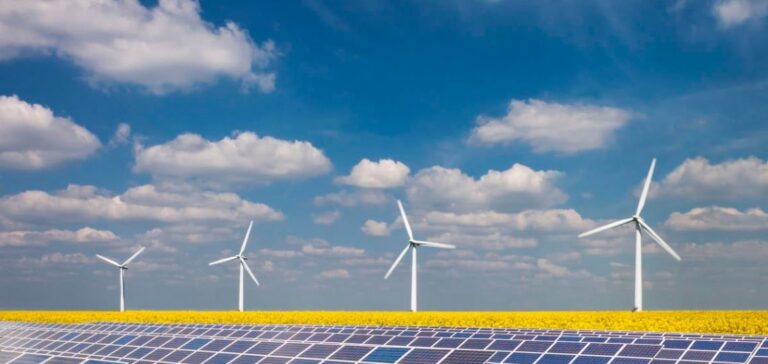Solar, wind… renewable energies are already generating nearly 13 million jobs worldwide, according to the REN21 think tank, which nevertheless deplores the fact that investment in these energies remains insufficient despite their social benefits.
Renewable energies: a solution for accessing energy, reducing costs and combating climate change.
“Due to inflation, energy costs or lack of vision”, the number of people without electricity is set to rise in 2022, for the first time in a long time, by 20 million to a total of some 774 million, mostly in sub-Saharan Africa, warns the report published on Wednesday, based on provisional data. In the wake of Covid and the energy crisis linked to the war in Ukraine, governments from the USA to the EU and Japan have launched plans to support renewable energies (RE).
“These measures open up remarkable prospects for economic growth and employment in the energy sector in the years to come”, notes the network of experts in this report devoted to the benefits of renewable energies (access to energy, reduced costs, health, fight against global warming…).
In 2021, more than 12.7 million jobs will be linked to renewable energies, according to REN21. In terms of qualifications, 70% of the workforce currently employed in the oil and gas sector has skills that are also in demand in green energies, the report points out.
In the EU, the objectives of the REPowerEU plan, which aims to move away from Russian fossil fuels, will require the creation of 3.5 million jobs by 2030. When the American plan (IRA) can generate nearly 5 million in energy, according to these estimates. India hopes to create more than 3.4 million new jobs in wind and solar power by 2030.
Investments in fossil fuels are depriving people of development gains, according to the REN21 report.
This country, which has imposed a tax on imports of photovoltaic cells, has a $3 billion plan to support domestic production of solar panels. And yet: while investment in renewable energies reached a record $495.4 billion in 2022, it is still a far cry from the $1,100 billion allocated to fossil fuels, notes REN21 in its report.
Developing countries, home to two-thirds of the world’s population, have benefited from just one-fifth of investment in renewables. In 2021, private banks provided 395 billion for fossil fuel projects, and 53 billion for renewable projects. As a result, 113 countries are still unable to provide access to electricity for all their inhabitants, and only 54 have set targets to improve this situation, according to the report.
“Despite the vast benefits of renewables, most countries and institutions continue to invest in fossils, including gas, depriving their citizens of potential development gains,” notes REN21 Director Rana Adib, quoted in the report.





















